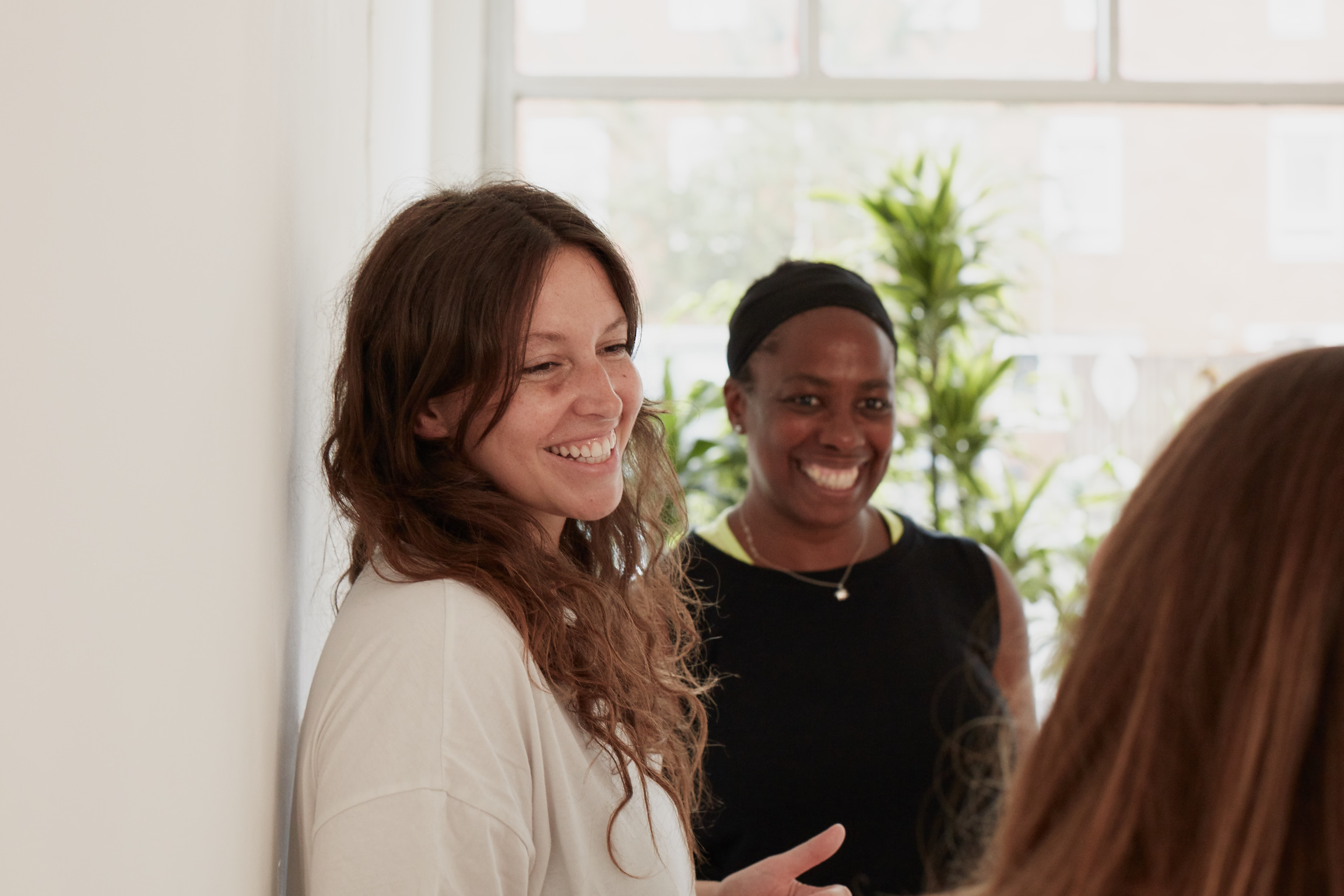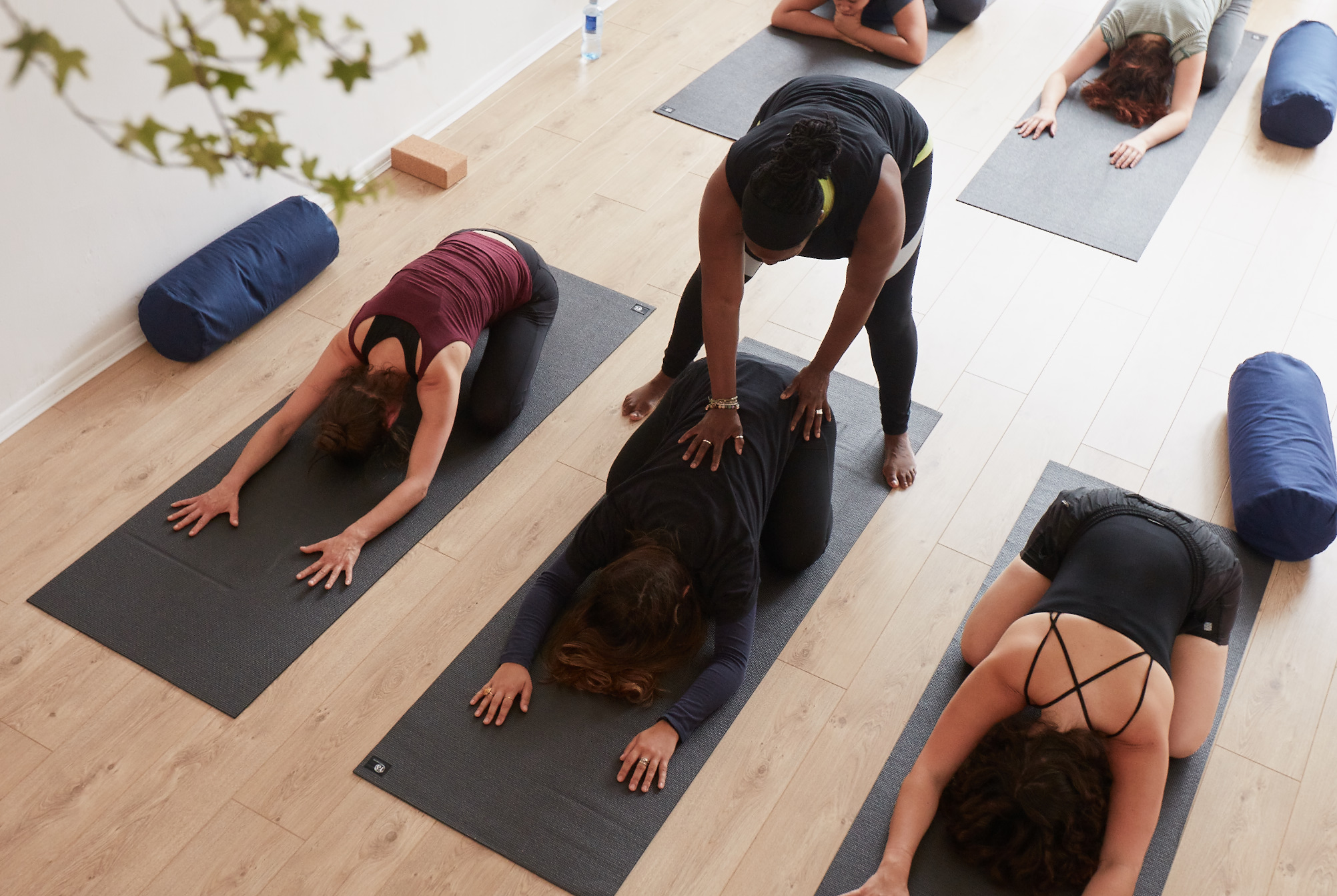A new model for whole community wellness
As twilight settles on a quiet back street in Hackney, East London, the hubbub at the end of class unfolds at Supply Yoga. Students roll up their mats carefully, returning props to shelves and chatting to one another sleepily as they put their shoes on, still yoga-high from their savasana. It’s a familiar scene to anyone who has been to a yoga class, but Supply is different to most studios in London. The studio is built on the principles of affordability, accessibility, and inclusivity, not only for the students in class but for the wider community as well.
the goal at the heart of Supply’s work is to combat social isolation.
Each of the students attending this evening can wend their way home knowing that the class has an impact greater than just their personal wellbeing, and that the (very reasonable) sum that they paid goes towards providing yoga, breathwork and meditation practices for folks throughout London living with mental and physical health challenges and the social isolation that often comes alongside.

Born out of founder Abi Nolan’s starkly contrasting experiences in the UK charity sector and the New York yoga scene, Supply was created to find a middle path. A way of doing good without constantly needing to chase funding, as was often the case in the charity sector. A way of sharing the physical, mental and social benefits of a yoga practice without the exclusivity and elitism that are often present in other yoga spaces in London and the West.
Supply is a social enterprise, which means that the profits made from all the classes at the studio are used to deliver yoga to communities that are facing mental or social isolation and have little access to the practices of yoga. Their unique model is cyclical and self sustaining: the more socially-conscious people who connect with the ethics of the business or require more affordable yoga classes, and therefore buy yoga at the studio, the more income is generated and the more impact Supply can have out in the wider community with their partnerships.
Supply partners with local migrant centres, hospitals, hospices and support groups for people living with long term health conditions
The perception of yoga as a pursuit for bendy people in expensive leggings can often keep people away but Supply aims to democratise the practice, both at the Studio, where classes are purposefully priced to be affordable for the local community, and through their partnerships with charities and grass roots community organisations, where the practices offered are often very different to a typical vinyasa flow class and are shaped by the needs of the service users. The hope is that all students not only experience the physical wellbeing of a yoga practice but also find mental and social wellbeing, reducing anxiety, building confidence and increasing social engagement.

In an era in which mental health services in the UK are under huge pressure and the health and wealth disparity in London is ever-increasing, this social element is becoming more and more important, especially when hoping to address the wellbeing of people with low social capital, and long term mental and physical health challenges. When Supply partners with local migrant centres, hospitals, hospices and support groups for people living with long term health conditions, they are conscious that they are working with populations who are particularly vulnerable to social isolation due to age, illness, change in circumstance or social challenges.
While the business is centred around the practices of yoga, the goal at the heart of Supply’s work is to combat social isolation. Yoga is simply a medium by which to do this. The wellness benefits of conscious movement, breath awareness and meditation are a helpful side effect but it’s the choice to come out and do something good for yourself that really makes the difference to a lot of service users. Abi often reminds participants in her outreach classes that “Getting here is the point, you’ve done it already! Everything else is a bonus”. It’s with this open-handed approach that Supply works to cultivate the social experience of togetherness.
spaces free of judgment and expectation in which people can take ownership of their own health, make positive decisions for themselves and build a sense of belonging in the world
Humans are social creatures, we evolved in small hunter-gatherer groups where belonging in a community could help protect us from predators, and because of this, being alone is both mentally and physically stressful. Social isolation is a growing concern in the UK, with a study run by the Red Cross in 2018 reporting that 9 million Britons often feel lonely, and loneliness can affect a person’s health in surprising ways. As well as the mental struggles of loneliness, long term social isolation can keep people in their sympathetic nervous system ready to ‘fight or flight’ against possible threats at any time, in turn leading to increased cortisol levels, decreased immune system responses, and increased inflammation, which is connected to cardiovascular disease, stroke and hypertension.
By providing spaces free of judgment and expectation in which people can take ownership of their own health, make positive decisions for themselves and build a sense of belonging in the world, Supply hopes to work against the tide of social isolation. Building community and connection at their welcoming studio, which in turn ripples out to serve populations who may have otherwise never experienced the benefits of yoga.